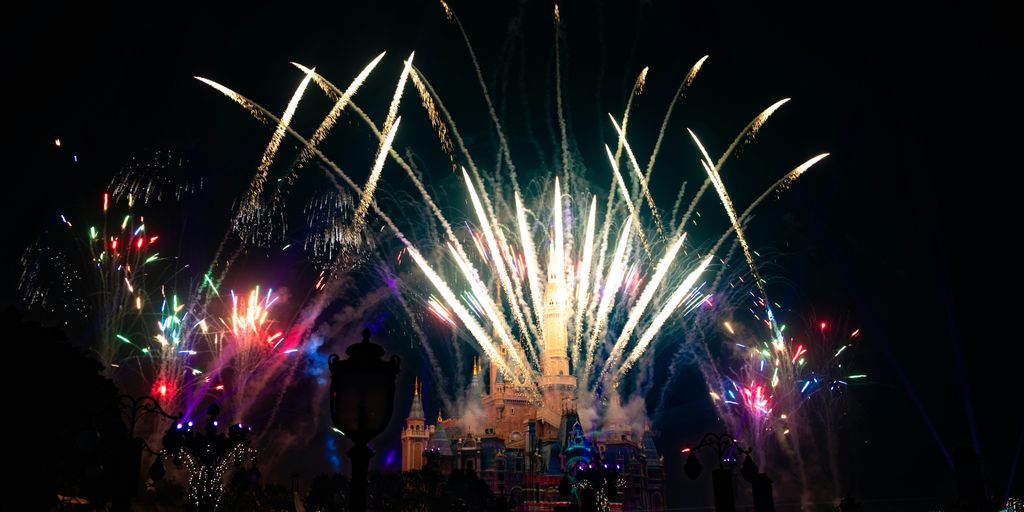Ever thought about having your own private concert in a super cool old castle or an ancient theater? It sounds like something out of a movie, right? Well, it’s totally possible! Planning something like this takes a bit of work, but the payoff is huge. Imagine your favorite music in a place steeped in history. It’s a unique experience that very few people get to have. This guide will walk you through how to make that dream of Private Concerts in Historic Venues a reality.
Key Takeaways
- Figure out what kind of music you want and what vibe you’re going for before anything else.
- Look into different castles or old theaters to find the right spot; think about how many people can fit and how the sound will be.
- Understand all the rules and get the right papers in order for historic places.
- Pick the right musicians and make sure they’re available, then sort out their contracts.
- Plan all the little details like sound, lights, seating, food, and getting people around.
Defining Your Vision for a Private Concert in a Historic Venue
Before you even start looking at castles or ancient theaters, you need to figure out exactly what you want. This isn’t just about booking a band; it’s about creating an experience. What kind of music? Who are you inviting? What’s the overall vibe you’re going for? These are the questions that will guide every decision you make.
Artistic Preferences and Genre Selection
First things first: what kind of music are we talking about? A string quartet in a medieval castle? A rock band in a Roman amphitheater? The genre will heavily influence the venue selection and the overall atmosphere. Think about what resonates with you and your guests. Are you aiming for elegant and refined, or something more energetic and modern? Maybe you want to explore Tahiti resorts for a tropical vibe instead.
Guest Experience and Atmosphere
Consider your guests. What kind of experience do you want them to have? Are you thinking black-tie elegance, or something more relaxed and informal? The atmosphere should complement the music and the venue. Think about lighting, decor, and even the dress code. Do you want a cocktail hour before the concert? A formal dinner afterward? These details matter. It’s all about creating a memorable night. Maybe even consider a private historical reenactment to add to the experience.
Budgeting for Exclusive Private Concerts
Let’s be real: private concerts in historic venues aren’t cheap. You need to have a realistic budget in mind before you start planning. This includes the venue rental, artist fees, sound and lighting, catering, security, and all those little extras that add up. Be prepared to spend a significant amount of money to make your vision a reality. It’s better to overestimate than underestimate. Here’s a basic breakdown of potential costs:
- Venue Rental: $5,000 – $50,000+
- Artist Fees: $10,000 – $1,000,000+
- Production (Sound, Lighting): $5,000 – $20,000+
- Catering: $2,000 – $20,000+
Don’t forget to factor in unexpected expenses. Things always come up, so it’s good to have a buffer in your budget. This could include anything from last-minute equipment rentals to additional security personnel. Planning for the unexpected can save you a lot of stress down the road.
Identifying Ideal Historic Venues for Private Concerts
Finding the right historic venue is a big deal. It’s not just about a cool backdrop; it’s about acoustics, capacity, and location. You want a place that wows your guests and works well for the performance.
Researching Castles and Ancient Theaters
Start by doing your homework. Look online, check out travel blogs, and maybe even contact historical societies. You’re looking for venues that not only have the wow factor but also fit your vision. Castles are great, but so are old theaters or even ruins. Think about what kind of vibe you want to create. For example, if you are looking for private castle rentals, you can find many options online.
Assessing Venue Capacity and Acoustics
Capacity is key. You don’t want a huge space for a small crowd, or vice versa. Acoustics are even more important. Can the venue handle the sound you need? Will you need to bring in extra equipment to make it sound good? These are questions to ask early on. Consider the natural acoustics of stone versus wood, and how that will affect the music. It’s worth getting a sound engineer’s opinion before you commit.
Geographic Considerations for Private Concerts
Where is the venue located? Is it easy for your guests to get to? Are there hotels nearby? Think about transportation, parking, and all that jazz. A remote castle might sound romantic, but if it’s a pain to reach, people might not come. Accessibility is a big factor, especially if you’re inviting people from out of town.
Location matters. Consider the ease of access for your guests, the availability of accommodations, and the overall logistics of getting people to and from the venue. A stunning venue in a difficult-to-reach location can quickly become a logistical nightmare.
Here’s a quick checklist to consider:
- Proximity to airports or major transportation hubs
- Availability of hotels and other accommodations
- Local attractions and activities for guests
- Accessibility for guests with mobility issues
Also, think about the overall experience. Maybe you want a venue near some of the most luxurious hotels so your guests can enjoy a full weekend of fun.
Navigating Venue Access and Permissions for Private Concerts
Turning a historic venue into a concert space isn’t as simple as setting up a stage. There are rules, regulations, and a whole lot of paperwork to consider. Let’s break down how to make sure your event is both memorable and, most importantly, legal.
Understanding Historic Site Regulations
Historic sites often come with a laundry list of rules designed to protect their integrity. These regulations can cover everything from noise levels to the types of equipment you’re allowed to bring in. It’s not just about avoiding damage; it’s about respecting the history and significance of the location. Think of it like visiting someone’s really, really old house – you wouldn’t start rearranging the furniture without asking, right?
- Research the specific rules of the venue early.
- Understand restrictions on modifications or alterations.
- Be prepared to adapt your plans to meet these requirements.
Securing Necessary Permits and Licenses
Permits and licenses are your golden tickets to a legal event. Depending on the location, you might need permits for things like amplified sound, serving alcohol, or even just having a large gathering. Don’t assume that because it’s a private event, you’re exempt. It’s always better to be safe than sorry, and dealing with fines or shutdowns mid-concert is a nightmare scenario. You might need to consult with local authorities to get the right event permits.
- Identify all required permits and licenses.
- Start the application process well in advance.
- Keep copies of all permits on-site during the event.
Working with Venue Management
Venue management is your best friend in this process. They know the ins and outs of the site, the local regulations, and who to talk to for what. Building a good relationship with them can make the entire process smoother and less stressful. They can also help you navigate potential pitfalls and offer solutions you might not have considered. Think of them as your guides through the maze of historic venue logistics. Consider asking them about private castle rentals.
Working closely with venue management is not just about compliance; it’s about collaboration. They can provide invaluable insights into the venue’s history, its unique challenges, and the best ways to create a memorable experience while respecting its heritage.
- Establish clear communication channels.
- Schedule regular meetings to discuss progress and address concerns.
- Respect their expertise and guidance throughout the planning process.
Curating the Perfect Musical Talent for Private Concerts
Choosing the right musical talent is super important for making your private concert unforgettable. It’s not just about finding someone who can play well; it’s about finding someone who fits the vibe of your event and the venue itself. Think about what kind of experience you want to create for your guests.
Selecting Renowned Artists and Ensembles
Okay, so you want to book someone amazing. Start by making a list of artists or ensembles that match your vision. Are you thinking classical, jazz, or something totally different? Consider their reputation, past performances, and whether they’ve played in similar venues before. Look at reviews, watch videos, and see if their style aligns with what you’re going for. Don’t be afraid to dream big, but also be realistic about who you can actually get.
Artist Availability and Scheduling
This is where things can get tricky. Even if you find the perfect artist, they might not be available when you need them. Start reaching out early to check their schedule. Be flexible with your dates if possible. It’s also a good idea to have a backup list in case your first choice isn’t free. Remember to factor in travel time and any other commitments they might have. For example, if you are planning a luxurious golf getaway, you need to make sure the artist’s schedule aligns with the trip.
Contracting and Rider Negotiations
Once you’ve found an available artist, it’s time to talk contracts. This is where you nail down all the details: payment, performance length, setlist, and any special requests they might have (their "rider").
Make sure everything is in writing and that you understand all the terms before signing anything. It’s a good idea to have a lawyer look over the contract to protect your interests. The rider can include anything from specific food and drinks to technical requirements for the stage. Be prepared to negotiate and find a compromise that works for both of you. If you are planning a trip to The Brando, you might want to consider the artist’s accommodation requests.
Here’s a simple example of what a contract negotiation might look like:
| Item | Artist Request | Your Offer | Final Agreement |
|---|---|---|---|
| Performance Length | 2 hours | 1.5 hours | 1.75 hours |
| Backstage Catering | Gourmet meal | Standard meal | Upgraded meal |
| Accommodation | 5-star hotel | 4-star hotel | 4-star hotel |
Logistical Planning for Private Concerts in Unique Settings
Planning a private concert isn’t just about booking the band; it’s about making sure everything works in a space that wasn’t necessarily designed for modern concerts. Think about power, acoustics, and even where people will sit. It’s a puzzle, but a fun one!
Sound and Lighting Requirements
Historic venues often present unique challenges for sound and lighting. You’ll need to assess the venue’s existing infrastructure and determine what additional equipment is necessary. This might involve:
- Conducting a site survey to evaluate power outlets and load capacity.
- Determining the best placement for speakers to optimize acoustics, considering the venue’s architecture.
- Planning for adequate lighting to create the desired ambiance while highlighting the architectural features. You might need to bring in your own generators if the venue’s power isn’t up to par. Don’t forget about noise restrictions, especially in residential areas.
Stage Setup and Backstage Facilities
Stage setup in a castle or ancient theater can be tricky. You’re not working with a standard concert hall. Consider these points:
- The stage size and location must accommodate the performers and their equipment. This might require custom building a stage.
- Backstage facilities, such as dressing rooms and restrooms, may be limited or nonexistent. Portable solutions might be necessary. Think about where the artists will relax before and after the show.
- Accessibility for equipment and personnel is crucial. Narrow doorways and uneven surfaces can pose challenges. Make sure you have a plan for getting everything in and out efficiently. You might need to rent special equipment to move things around.
Guest Seating and Viewing Arrangements
How your guests experience the concert is key. It’s not just about the music, it’s about the view and the comfort. Here’s what to consider:
- Seating capacity and layout should maximize viewing angles and comfort. Consider tiered seating or risers for better visibility. You might need to rent chairs or bleachers.
- Accessibility for guests with disabilities is essential. Ensure there are ramps, designated seating areas, and accessible restrooms.
- Weather protection, such as tents or canopies, may be necessary for outdoor venues. Have a backup plan in case of rain. You don’t want your guests getting soaked. Consider resort options for accommodation.
Logistical planning is more than just checking boxes; it’s about anticipating potential problems and having solutions ready. It’s about making sure the event runs smoothly, so your guests can focus on enjoying the music and the unique setting. It’s about creating an experience, not just a concert. Don’t forget to check The Brando for inspiration.
Enhancing the Private Concert Experience with Ancillary Services
So, you’ve got the venue and the artist sorted for your private concert. Now it’s time to think about the extras that will really make the event unforgettable. It’s the little things that people remember, right? Let’s talk about how to make this concert truly special.
Catering and Beverage Options
Food and drinks can make or break an event. Think beyond basic snacks. Are we talking a formal sit-down dinner, or more of a relaxed cocktail-style reception? Consider the theme of the concert and the venue itself when choosing your menu. You could go with local cuisine to highlight the location, or something that complements the artist’s style. Don’t forget about dietary restrictions and allergies! And of course, a well-stocked bar with signature cocktails is always a hit. Maybe even name one after the artist!
- Formal plated dinner
- Casual buffet
- Cocktail reception with hors d’oeuvres
Transportation and Accommodation for Guests
Getting to and from a castle or ancient theater can be tricky, especially if it’s in a remote location. Think about how your guests will arrive. Will you provide transportation? A shuttle service from a central location can be a lifesaver. And what about accommodation? If guests are traveling from afar, arranging hotel rooms or suggesting nearby luxury accommodations Brando pricing can really ease their stress. Make sure to negotiate group rates if possible!
Providing transportation and accommodation details well in advance shows you care about your guests’ comfort and convenience. It also helps prevent logistical nightmares on the day of the event.
Security and Event Staffing
Security is a must, especially for high-profile events. You need to ensure the safety of your guests, the artist, and the venue itself. Hire professional security personnel who are experienced in handling events of this scale. Also, don’t forget about event staff! You’ll need people to help with everything from registration and ushering to serving drinks and managing the crowd. A well-trained and attentive staff can make a huge difference in the overall experience. Consider these points:
- Professional security team
- Experienced event staff
- Clear communication channels
Having the right team ensures everything runs smoothly and your guests feel safe and well taken care of. It’s all about creating a memorable and enjoyable experience for everyone involved, even those who might be considering lunar tourism in the future.
Overcoming Challenges in Historic Venue Private Concerts
Historic venues are amazing, but they come with their own set of headaches. It’s not like booking a regular concert hall. You’re dealing with old buildings, strict rules, and a whole lot of potential for things to go wrong. Let’s look at some common issues and how to handle them.
Addressing Accessibility Limitations
One of the biggest problems is accessibility. These old castles and theaters weren’t built with modern accessibility standards in mind. Think narrow doorways, stairs everywhere, and uneven ground. Making sure everyone can enjoy the concert requires careful planning. Here’s what you might need to consider:
- Ramps: Can temporary ramps be installed without damaging the structure?
- Elevators/Lifts: Are there existing lifts, or can temporary ones be brought in?
- Designated Seating: Clearly marked accessible seating areas are a must.
- Restrooms: Accessible restroom facilities need to be available.
It’s not just about meeting legal requirements; it’s about making your event inclusive and welcoming for all your guests. Communicate clearly about accessibility limitations beforehand so people can make informed decisions.
Weather Contingency Planning
Outdoor concerts are risky, especially in historic venues that might not have covered areas. Weather can change quickly, and you need a backup plan. Here’s what to think about:
- Tent Options: Can a large tent be set up quickly if rain is expected?
- Indoor Alternatives: Is there an indoor space available as a last resort?
- Weather Monitoring: Have a system for monitoring weather conditions in real-time.
- Communication Plan: How will you communicate changes to guests if the weather turns bad?
Preserving the Historic Integrity of the Venue
This is huge. You can’t just drill holes in the walls or hang heavy equipment from the ceiling. Every decision needs to respect the venue’s historical value. Here are some things to keep in mind:
- Non-Invasive Setup: Use equipment that doesn’t require permanent alterations.
- Protective Coverings: Protect floors and walls from damage during setup and the event.
- Restricted Areas: Clearly mark areas that are off-limits to guests and staff.
- Expert Consultation: Work with historical preservation experts to ensure compliance.
Planning a private concert in a historic venue is a challenge, but the unique atmosphere and prestige make it worth the effort. Just be prepared to deal with these issues head-on, and you’ll create an unforgettable experience. Remember to consider private travel options for your guests to ensure a smooth experience. Also, don’t forget about high-end survival programs for a unique pre-concert activity. And for the artists, consider private villas with recording studios for a luxurious stay.
Legal and Insurance Considerations for Private Concerts
Planning a private concert in a historic venue? It’s not just about the music and the location. You’ve got to think about the legal stuff and insurance too. It might seem boring, but skipping this part could lead to big problems down the road. Let’s break down what you need to know.
Liability and Event Insurance
Getting the right insurance is super important. You need to protect yourself from, well, pretty much anything that could go wrong. Think about it: someone trips and falls, equipment gets damaged, or even worse. Liability insurance covers you if someone gets hurt or their property is damaged during the event. Event insurance can cover things like cancellation due to bad weather or other unforeseen circumstances. It’s better to be safe than sorry, especially when dealing with historic sites that might have unique risks.
Artist Contracts and Intellectual Property
Before the first note is played, make sure you have a solid contract with the artist. This contract should cover everything: payment, performance expectations, cancellation policies, and who owns the rights to any recordings made during the concert. You don’t want to end up in a legal battle over intellectual property later on. Make sure the contract clearly states who owns the rights to the music and any recordings made during the event. This is especially important if you plan to use any of the recordings for promotional purposes.
Compliance with Local Regulations
Every city and town has its own set of rules and regulations. You need to make sure you’re following all of them. This could include noise ordinances, fire safety regulations, and permits for serving alcohol. Ignoring these rules can lead to fines, or even having your event shut down. Check with the local authorities to find out what permits and licenses you need. Don’t assume that just because you’re renting a historic venue, you’re exempt from these rules. For example, you might need to consider private dining regulations if you’re serving food.
It’s always a good idea to consult with a lawyer who specializes in event planning. They can help you navigate the legal landscape and make sure you’re covered from all angles. They can also help you draft contracts and negotiate with insurance companies.
Here are some key things to keep in mind:
- Get liability insurance that covers personal injury and property damage.
- Have a detailed contract with the artist that covers all aspects of the performance.
- Check with local authorities to find out what permits and licenses you need.
- Consider luxury vehicles for transporting artists and equipment, ensuring compliance with transport regulations.
- Make sure you understand the venue’s rules and regulations regarding noise levels and alcohol service.
- Review the North Island resort guidelines for event planning, as they often include legal and compliance sections.
- Document everything in writing, including contracts, permits, and insurance policies.
Marketing and Invitation Strategies for Private Concerts
Crafting Exclusive Invitations
Okay, so you’re throwing a private concert in a castle. Forget generic invites! We’re talking about something special. Think about the overall aesthetic of your event. Is it super formal, or more relaxed and intimate? Your invitation should reflect that. Consider using high-quality paper, calligraphy, or even a custom-designed emblem related to the venue or the music. It’s all about creating a sense of anticipation and exclusivity. Don’t forget to include all the important details, like the date, time, location, dress code (if any), and RSVP information. Make it clear that this is an event by invitation only, and that spots are limited.
Discreet Promotion for High-Net-Worth Individuals
Promoting a private concert for high-net-worth individuals is a delicate dance. You’re not blasting it all over social media. Instead, think targeted and personal. Work with concierge services, private clubs, and luxury travel agencies to reach your desired audience. Word-of-mouth is also powerful.
- Leverage existing networks.
- Offer exclusive previews to key influencers.
- Partner with luxury brands for cross-promotion.
The key is to create a buzz without sacrificing privacy. You want people to feel like they’re in the know, part of a select group. This is where luxury mountain escapes come into play, offering a similar sense of exclusivity and tailored experiences.
Managing Guest Lists and RSVPs
Your guest list is your lifeline. Start with a core group of VIPs and then expand strategically. Use a system to track RSVPs efficiently. This could be as simple as a spreadsheet or a more sophisticated event management platform. Confirm attendance well in advance, and have a waiting list in case of cancellations.
Here’s a simple way to think about it:
| Guest Type | Priority | RSVP Deadline | Notes |
|---|---|---|---|
| VIPs | High | [Date] | Personal follow-up required |
| Key Influencers | Medium | [Date] | Offer special perks, like backstage access |
| General Invitees | Low | [Date] | Send reminder emails |
Remember to be flexible, but also firm. You need an accurate headcount for catering, seating, and security. Consider using a unique code on each invitation to prevent unauthorized guests. If you’re looking for a similar level of detail and exclusivity, consider exploring The Brando for your next getaway. It’s all about the details!
Executing a Flawless Private Concert Event
On-Site Coordination and Management
So, the big day is here! It’s all about making sure everything runs smoothly. This means having a dedicated team on-site to handle any issues that pop up. Think of them as your event superheroes. They’ll manage vendors, direct guests, and keep the whole show on track. It’s a lot like directing a play, but with more expensive instruments and fancier outfits. You’ll want to have a clear chain of command, so everyone knows who to report to.
Technical Rehearsals and Sound Checks
Before the guests arrive, it’s sound check time! This is when the band or artist gets to test out the acoustics of the venue and make sure all the equipment is working properly. It’s also a good opportunity to run through the setlist and iron out any kinks. You don’t want any surprises during the actual performance, so take the time to do a thorough rehearsal.
Here’s a quick checklist:
- Microphone tests
- Instrument tuning
- Lighting adjustments
- Speaker placement
Post-Event Venue Restoration
Once the last encore is played and the guests have departed, it’s time to clean up. This is especially important in a historic venue, where you need to be extra careful to avoid damaging anything. Make sure you have a plan in place for removing all equipment and decorations, and restoring the venue to its original condition. It’s all about leaving no trace behind. Consider hiring a professional cleaning service that specializes in historic properties. This can save you a lot of headaches and ensure that the venue is properly cared for. Remember to check for any damages and address them promptly. You want to maintain a good relationship with the venue management for future events. For a truly memorable experience, consider luxury family travel options.
The key to a successful event isn’t just the performance itself, but also the meticulous planning and execution that goes on behind the scenes. From the initial setup to the final cleanup, every detail matters. By paying attention to these details, you can create an unforgettable experience for your guests and ensure that the venue remains in pristine condition for years to come. Don’t forget to explore private jet vacations for seamless travel.
Want to make your next private concert truly special? It’s all about the little things that make a big difference. From picking the perfect spot to making sure every sound is just right, we can help you plan an amazing event. Find out how to make your private concert unforgettable by visiting our website.
Conclusion
So, there you have it. Getting a private concert in a castle or old theater might seem like a big deal, but it’s totally doable. It just takes some planning and knowing who to talk to. Think about what kind of music you like, what kind of place you want, and how many people will be there. With a little effort, you can make a really special memory. It’s all about making that dream event happen, and it’s probably easier than you think.
Frequently Asked Questions
How much does it usually cost to have a private concert in an old castle or theater?
The cost can change a lot depending on the place, the artists you pick, and how fancy you want the event to be. It’s best to talk to event planners who do this kind of thing to get a clear idea.
Do I need special permission to hold a concert at a historic site?
Yes, you’ll probably need special permits and licenses, especially for old or protected places. The venue staff or a good event planner can help you figure this out.
How far in advance should I start planning a private concert like this?
It’s a good idea to start planning at least 6 to 12 months ahead of time. This gives you enough time to find the right place, book the artists, and sort out all the small details.
How do I find and book famous musicians for my private concert?
You can find artists through special agencies, music managers, or by asking event planners who work with high-end events. They can help you find famous musicians or groups that fit your taste.
Are there any common problems when hosting events in very old buildings?
Many old places might have some challenges, like not having ramps for wheelchairs or limited power for sound systems. It’s important to check these things early on and plan for them.
Is event insurance necessary for a private concert in a historic venue?
Yes, it’s really important to have insurance for your event. This protects you if something unexpected happens, like an accident or damage to the property.
Are there rules about noise levels or equipment in historic venues?
Some old venues might have rules about how much sound you can make or what kind of equipment you can use to protect the building. It’s always best to ask about these rules early in the planning process.
What if the weather is bad on the day of the concert?
Yes, you should definitely have a plan for bad weather, especially if part of your event is outside. This could mean having tents ready or a backup indoor space.












